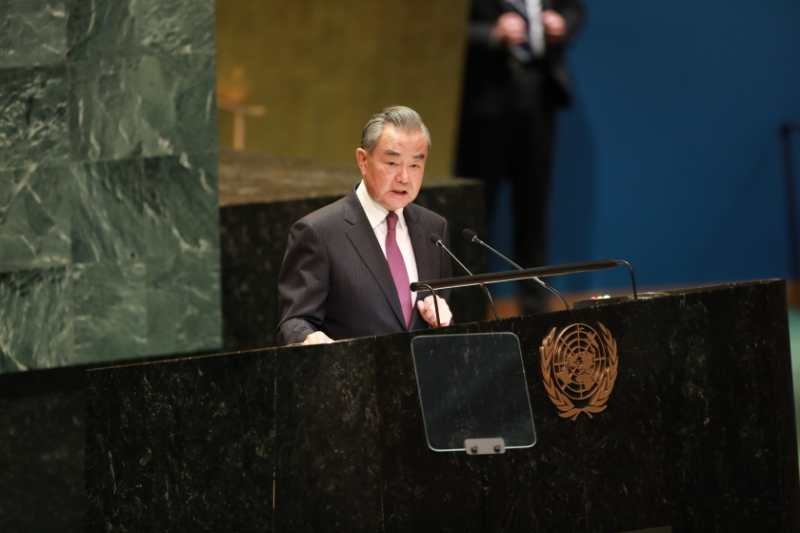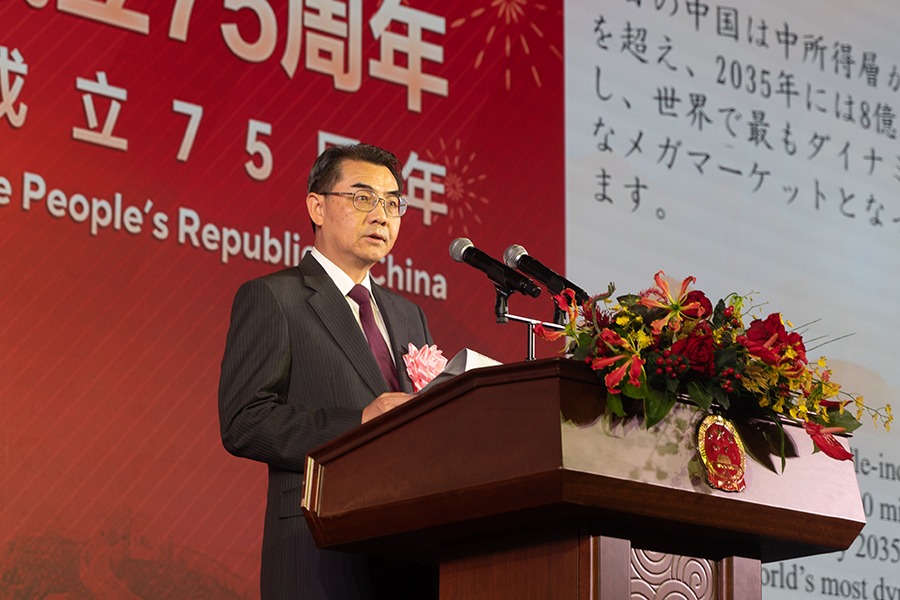US urged to stop Taiwan provocations
Experts slam Biden's actions, saying blurring of red line detrimental to ties

The recent words and actions of the United States, including those of President Joe Biden, on the Taiwan question have been detrimental to cross-Strait and US-China relations, and the US should stop its provocations, experts said.
"The US knows that China's red line is Taiwan. Yes. Don't cross it. Just do not cross it," Anthony Moretti, associate professor and department head of Communication and Organizational Leadership at Robert Morris University, told China Daily.
"The US has been blurring the one-China policy, trying to remove the core elements, and actually provoking the one-China principle recognized by the whole world, "Wu Huiqiu, chairman of the board of the Washington China Unification Promoting Association, said.
In an interview with Time magazine, Biden said US military involvement in Taiwan would "depend on the circumstances". When asked whether he would deploy troops if necessary, Biden said he was "not ruling out using US military force".
The Defense Security Cooperation Agency, under the US Department of Defense, announced last week that the US State Department had approved two potential arms sales of $300 million to Taiwan, including the sale of F-16 fighter jet spare parts and maintenance parts.
Moretti said the US' calculation has to include a series of factors when deciding whether to use US military force.
First, the Taiwan Strait is geographically far from the US. Second, "basically, you're playing on China's home turf" if the US sends troops to the Strait. Third, the US public would consider "the recent failures" because military campaigns in Afghanistan and Iraq ended poorly. And the cost cannot be ignored, Moretti said.
"You put it all together, and to presume that the US would send troops, I think, is a bad suggestion," he said.
Wu described Biden's comment as "a hypothetical, vague and tactical expression" and another move of "playing the Taiwan card".
"What's bad is that he's sending misinformation that the 'Taiwan independence' forces in the island would see as a statement that the US is going to act on. And that is negative for cross-Strait relations," Wu said.
Wu also said he was concerned more about the "actions", including arms sales.
A delegation of 27 US defense contractors, including Lockheed Martin and Raytheon, visited Taiwan and held a closed-door "Taiwan-US Defense Industry Forum" with companies and organizations of the island in Taipei last week. Steven Rudder, former US Navy commander of the Marine Corps Forces Pacific, attended the opening ceremony.
"This is another example of the Biden administration's recent inconsistency in its words and deeds on the Taiwan question, which has made cross-Strait mutual trust even more fragile, and US relations even more fragile," Wu said. "The US has been 'playing the game' for a long time, and it is actually unwilling to see the two sides of the Taiwan Strait come together."
Responding to Biden's comments on not ruling out military force, Mao Ning, spokeswoman for the Chinese Foreign Ministry, urged the US to stop arming Taiwan and stop sending any wrong signals to "Taiwan independence" separatist forces.
Arms sales opposed
Commenting on the latest US plan for arms sales, Zhang Xiaogang, spokesman for China's Ministry of National Defense, urged the US to revoke its plan and stop arming the region.
Zhang said supporting "Taiwan independence" separatist forces will only escalate tensions in the region, push Taiwan into a dangerous situation, and ultimately harm the US itself.
The Chinese People's Liberation Army has intensified military training and enhanced combat preparedness to resolutely safeguard China's national sovereignty and territorial integrity, Zhang said.
Wu said the US wants to turn Taiwan into a "self-defense island "that "defends itself, rushes ahead, and serves as cannon fodder", while the US will hide far away when there is a real cross-Strait conflict.
"It is unbelievable and impossible for the US to engage in a head-on conflict with another major nuclear power," Wu said. "The more Taiwan provokes, the faster the reunification process will be."
Moretti said he hoped the US could acknowledge that it would be good for people in the US and China, and for all of Asia and the world to have a cooling of tensions and act accordingly thereafter.
But he said he does not expect the political leadership in the US to take action to dial down the situation because the existing political climate in Washington would see such behavior as a "weakness".
"We can hope that there is not an accident of some kind that requires a response that could be very dangerous for all parties involved," Moretti said.
He suggested that the US can pursue more conversations with China. "Common sense has to guide the conversation, and we're not seeing enough of that," Moretti said.
Wu also said the initiative to end the "vicious cycle" of US-China relations as a whole and the Taiwan question lies more on the US side.
"It is the US that is constantly provoking, creating momentum and sending wrong signals to the 'Taiwan independence' forces and the world. The initiative lies with the US because the US is the provocative side," Wu said.
"US politicians should not be influenced by anti-China forces. They should have their own calm consideration about how to get along with another major power," he said.
"The good thing is that the mainland is very strategic in encouraging cross-Strait integration, development and more exchanges, especially among the youths."
































